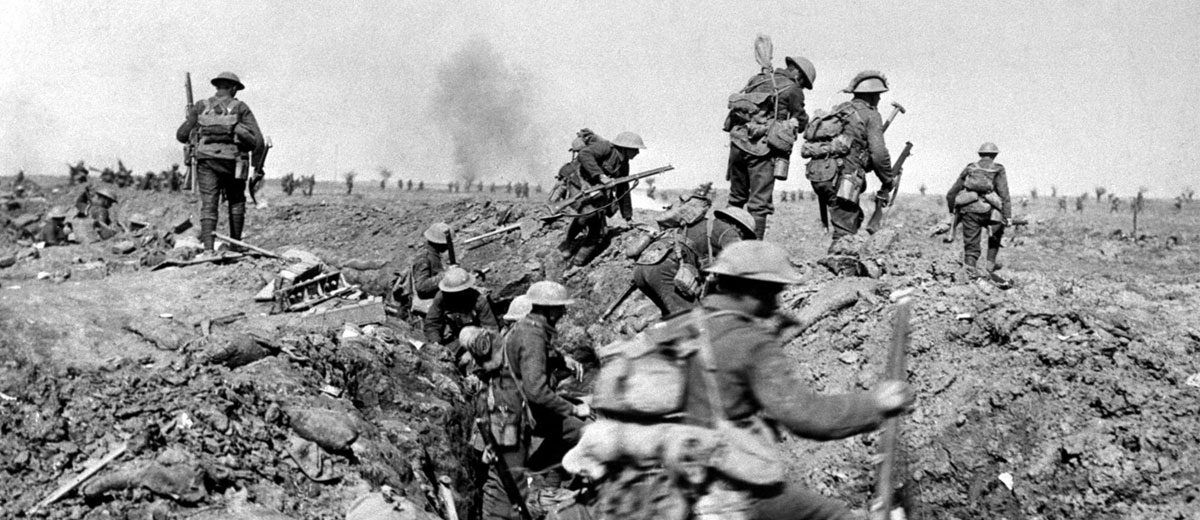The grey light of dawn is creeping slowly along the eastern horizon. In the Somme Valley, France, a complicated network of trenches stretches across the landscape. Allied soldiers are along one side; German troops line the other. Between them lies No Man’s Land—scarred, cratered, and utterly empty of life. The silence is deafening. Then, with a roar, a legion of guns comes to life and a barrage of artillery fire pelts enemy lines.
It’s July 1, 1916. The First Battle of the Somme has begun.
Today marks 100 years since the beginning of this battle. It was an Allied offensive that lasted for four horrific months and was the largest battle of the First World War on the Western Front. It had been expected to be a great Allied victory, but it soon turned into a nightmare. On the first day alone, Britain sustained nearly 60,000 casualties—more than any other day in its history.
The offensive began at 6:00 a.m., with the Allies bombarding German lines with artillery fire. At about 7:20, 18,000 kg of explosives were detonated under the German stronghold known as Hawthorn Ridge, creating a crater 40 meters wide and 18 meters deep. And ten minutes later, at 7:30 a.m., the first wave of Allied troops went over the top.
The enemy fire they faced was much stronger than they had expected. Most were killed or wounded in the first few minutes. And those who managed to cross No Man’s Land were greeted with a sickening discovery: despite one week of Allied bombardment, enemy barbed wire had not been cut. Many of them died while trying to make it through the uncut wire.
The battle left lasting scars on Canada. In the morning of July 1, the Newfoundland Regiment, stationed at the Somme, numbered more than 800 men. The following day, only 68 answered roll call. To this day, while the rest of Canada celebrates wildly, Newfoundland remembers July 1 as Memorial Day.
By the time the First Battle of the Somme ended in November, 1916, more than 1 million men had been killed or wounded. The Allies had advanced roughly 6 miles into enemy territory.
Today, in the midst of your Canada Day celebrations, don’t forget these events of 100 years ago. Take a moment to remember the sacrifice of these brave people. Without their heroism, we would scarcely know the meaning of the word CANADA.
